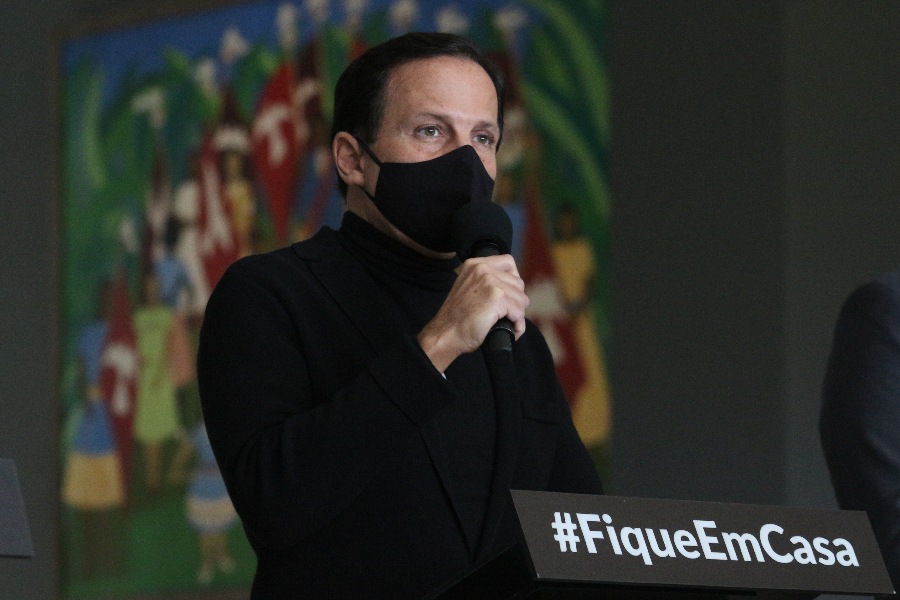RIO DE JANEIRO, BRAZIL – The state of São Paulo failed to meet the goals for the return to school to occur on September 8th. According to the criteria established by the Coronavirus Contingency Committee of the João Doria government, all the regions that make up the state would have to have been in the São Paulo Plan’s Yellow phase for at least 28 consecutive days.

However, there are currently three regions still in phase 1-Red, the most restrictive. Since the progress interval in the plan’s phases occurs every two weeks, a likely restart date will only take effect in the last week of September or early October.
In a press conference on Friday, July 24th, the state Secretary of Health, Jean Carlo Gorinchteyn, conceded that the return to school in São Paulo will “very likely” not occur on September 8th. “We clearly defined that for a very flexible and gradual resumption of classes on September 8th, some rules should be very clear and safe”.
“Among them, that the 17 health regions – there are 22 in the São Paulo Plan – should be in the yellow phase for 28 days. If we look at today’s map, there are still areas in red. We have others in orange and others in yellow. So this expectation is not likely to occur,” he said.
The three regions currently in red are Franca, Ribeirão Preto, and Piracicaba. If the situation improves, they may move on to phase 2-orange on August 7th. In a steady improvement, to the 3-yellow phase, on August 21st. From then on, the 28 days with no regression – that is, no increase in new cases, deaths, and hospitalizations in the state – would be reached on September 18th. Classes have been suspended since March 24th.
Hasty
Nonetheless, the Doria government has already broken the rules of the São Paulo Plan on several occasions to speed up the process of reopening business. Three weeks ago, the region of Registro jumped straight from phase 1-red to phase 3-yellow, without passing the orange phase. In addition, the Doria government has already authorized that stores and services operate longer hours than those established in phase 2-orange, and that establishments that, previously, would only be allowed to open in phase 4-green, could open in phase 3-yellow.
The proposal is that school classes in São Paulo should be resumed all at once. Consequently, it was determined that this will only occur after the entire state is at least in phase 3-Yellow, with three crucial statistical factors: the Intensive Care Unit (ICU) occupancy must range between 60 and 70 percent; the increase in cases should have an index – data showing the increase in cases in relation to the preceding week, with one being the indicator of stability – between one and two; and an index of new deaths and new hospitalizations ranging between 0.5 and one. Currently, the state has three regions in phase 1-Red, 11 in phase 2-Orange, and eight in phase 3-Yellow.
The return to classes will be conducted in three stages. In the first stage, up to 35 percent of students will be allowed to return to school, maintaining a distance of 1.5 meters between them, both in the classroom and in school transportation, as well as in the cafeteria and collective activities. In the second stage, along with the regions’ remaining in phase 4-Green for 14 days, up to 70 percent of students will return under the same protocols. If the pandemic is kept under control during phase 4-Green for a further 14 days, 100 percent of the students will be allowed to return.
Against the return
However, a mathematical model developed by Eduardo Massad, a researcher at the Getúlio Vargas Foundation (FGV), presents a frightening projection: 17,000 children under the age of five risk dying of Covid-19 across the country as a result of a premature returning to school.
“Classes definitely must not restart in September. We currently have 500,000 children in Brazil with the virus roaming around. If schools reopen in August, even if they wear masks, even if they keep a two-meter distance. On the first day of class, we will have 1,700 new infections, with 38 deaths. That will double after 10 days and quadruple after 15 days. So opening schools now is genocide,” Massad said.
Teachers are against returning to class because they believe the risk is too high for students, staff, and families. “Schools should be the last to return to in-person activities, and still only when there is a sharp reduction of the pandemic and health security for teachers, students, staff and their families is guaranteed. In the current context, with no prospect of a rapid control of the pandemic, the use of information and communication technologies should be maintained until December,” argues the São Paulo State Union of Official Teaching Professors (APEOESP).
School Community
Teachers and municipal education staff are also against returning to school. In an online debate on the health protocol for resuming school activities, Bruno Caetano, the municipal Secretary of Education, heard that “the return to school is impractical” and that the protocols defined to date “are far removed from reality on the school grounds”. In the comments, the majority of staff and families opposed the return to school.
Education professionals point out that it is necessary to ensure the provision of personal protective equipment (PPE), coronavirus tests for both staff and families, and that the protocols be established from the facilities and from the perspective of education workers.
Monitoring social media data on July 23rd show that the proposal to return to school was criticized by 87 percent of Facebook users. Only six percent advocated it, and the remainder were indifferent. Among the main concerns was the correlation between returning to school while major events are postponed or canceled, such as New Year’s Eve on Paulista Avenue, the 2021 Carnaval, the Gay Pride Parade, and the March for Jesus.
Source: Rede Brasil Atual

